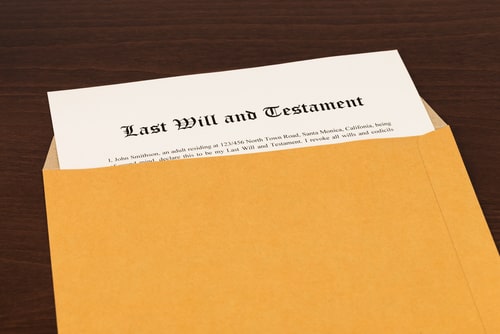Recent Blog Posts
A Review of Roles Assigned in a California Estate Plan
 An estate plan is an excellent way to help you and your loved ones in the future. It is an opportunity for you to take time while you are able and decide how exactly you would like your estate to be handled and what medical measures you would want to be enacted if you ever become incapacitated and unable to make those decisions or voice your opinions. It can be daunting, but sitting down and creating an organized plan to address everything now is like giving your future self and your loved ones an incredible gift because it reduces confusion and stress down the line. This article will explain the various people you will need to appoint in your estate plan. If you think it is time to start working on an estate plan, speak with a qualified Los Angeles, CA estate planning attorney to learn more.
An estate plan is an excellent way to help you and your loved ones in the future. It is an opportunity for you to take time while you are able and decide how exactly you would like your estate to be handled and what medical measures you would want to be enacted if you ever become incapacitated and unable to make those decisions or voice your opinions. It can be daunting, but sitting down and creating an organized plan to address everything now is like giving your future self and your loved ones an incredible gift because it reduces confusion and stress down the line. This article will explain the various people you will need to appoint in your estate plan. If you think it is time to start working on an estate plan, speak with a qualified Los Angeles, CA estate planning attorney to learn more.
Who Do You Need to Appoint?
As you begin drafting your estate plan, there are several people you need to assign roles to, including:
Why Do I Need an Estate Plan?
 Anyone considering setting up an estate plan would likely be advised that it is a good idea. An estate plan removes a lot of the doubt and questions that might otherwise be asked after you have passed away. It is a way for you to clearly explain your wishes and how you want your assets to be handled once you are no longer able to express those wishes. While people often think the only reason to draft an estate plan is to protect your assets, this article will describe some other reasons that might help you in your decision. If this is relevant for you, speak with a compassionate L.A. County, CA estate planning lawyer who can guide you through this process.
Anyone considering setting up an estate plan would likely be advised that it is a good idea. An estate plan removes a lot of the doubt and questions that might otherwise be asked after you have passed away. It is a way for you to clearly explain your wishes and how you want your assets to be handled once you are no longer able to express those wishes. While people often think the only reason to draft an estate plan is to protect your assets, this article will describe some other reasons that might help you in your decision. If this is relevant for you, speak with a compassionate L.A. County, CA estate planning lawyer who can guide you through this process.
Provisions for Minors
When a parent of minor children passes away, questions arise about guardianship. Your estate plan can include clear instructions about who should be responsible for your children if you or your spouse should die. You can even have a prioritized list of people based on who is available to care for your children at the time of your death. Your estate plan can also include which assets should be directed to the guardians to help them with the added costs of taking in your children, as well as assets that can be otherwise used for their benefit while they are still minors.
Options If a Parent Is Not of Sound Mind While Drafting a Will
 When people leave a last will and testament behind, their loved ones often consider it a wonderful gift. When someone describes in detail how they want their estate to continue after their passing and what they wish to bestow upon those who live after them, it can help prevent arguments between relatives and stress stemming from uncertainty about what to do.
When people leave a last will and testament behind, their loved ones often consider it a wonderful gift. When someone describes in detail how they want their estate to continue after their passing and what they wish to bestow upon those who live after them, it can help prevent arguments between relatives and stress stemming from uncertainty about what to do.
However, wills are not something that every person is entitled to draw up no matter what. For a will to be considered valid, the person who created it needs to demonstrate that they had testamentary capacity at the time they were writing it up. This means they need to have mental competence or the will is invalid.
If your loved one is suffering from dementia, Alzheimer's, or other mental issues, it can be a painful time for both you and them in general, and painful for you to prove they are mentally incapacitated for legal purposes in particular. The law allows you to contest the will if you have reason to believe that it does not represent their true intentions. Speak with a compassionate Los Angeles, CA estate planning attorney who can help you navigate this complicated situation.
How Can an Attorney Assist an Estate Executor in California?
 When someone passes away, their assets and estate need to be managed and distributed according to the wishes set forth in their last will and testament. An executor is appointed to carry out these responsibilities, ensuring everything is handled smoothly and legally. Many estate executors are family members of the deceased, and may not have experience with the complex laws surrounding the probate process. In California, an attorney is a valuable resource for an estate executor, providing guidance and support and helping the executor avoid missteps and confusion.
When someone passes away, their assets and estate need to be managed and distributed according to the wishes set forth in their last will and testament. An executor is appointed to carry out these responsibilities, ensuring everything is handled smoothly and legally. Many estate executors are family members of the deceased, and may not have experience with the complex laws surrounding the probate process. In California, an attorney is a valuable resource for an estate executor, providing guidance and support and helping the executor avoid missteps and confusion.
With 35 years of experience, Attorney Schechet at Law Office of David Schechet is among the most talented and respected legal professionals in California estate planning law. For executors seeking legal guidance, Attorney Schechet is a legal professional whose knowledge and experience are second to none. Whether your case is highly complex and involves high-value estate planning instruments, or whether you are going through the probate process with a simple, straightforward will, our office is here to help.
How the California Probate Process Works
 Many steps require completion before an estate executor can pass down any assets to the beneficiaries named in a deceased person’s will. Each step must be completed exactly as the court specifies, which includes the filing of many forms, and an executor must follow each step of the California probate process in order. Because executors are often family members who do not have a specialized understanding of the law, following the probate process can be complicated and confusing. For help concerning every aspect of the probate process,consult an estate planning attorney for questions or advice.
Many steps require completion before an estate executor can pass down any assets to the beneficiaries named in a deceased person’s will. Each step must be completed exactly as the court specifies, which includes the filing of many forms, and an executor must follow each step of the California probate process in order. Because executors are often family members who do not have a specialized understanding of the law, following the probate process can be complicated and confusing. For help concerning every aspect of the probate process,consult an estate planning attorney for questions or advice.
The Petition
A petition for probate must be filed in the California county in which the deceased person lived when they died. The court will then give notice of a necessary hearing that will take place in approximately 30 to 40 days. The petitioner will also need to file a copy of the deceased individual’s will (if they had one) and a copy of the death certificate (in some circumstances), and pay the filing fee.
Wills vs Trusts: Which is Better?
 The short answer to which is better, a will or trust, is that it depends entirely on what it is you need it for. A better way to answer this question would be to dive into what a will and a trust are and what makes them different from one another. You should also keep in mind that you can have both. Whatever your estate planning needs are, an attorney can go over the document with you or help draft it to ensure your wishes are enforceable.
The short answer to which is better, a will or trust, is that it depends entirely on what it is you need it for. A better way to answer this question would be to dive into what a will and a trust are and what makes them different from one another. You should also keep in mind that you can have both. Whatever your estate planning needs are, an attorney can go over the document with you or help draft it to ensure your wishes are enforceable.
A Last Will and Testament
A will takes effect only once you pass away. A will is a document that allows you to declare who will receive your possessions once that occurs. In California, a will must be signed in front of two witnesses, both of whom must verify that during the signing, you were of sound mind and body. In other words, they must certify that you did not sign the will through coercion or under duress.
Legal Representation Through a Will Contention Case

Will contention cases, also known as will disputes or will contests, are difficult situations that can arise when disagreements arise regarding the validity or interpretation of a will. In these situations, seeking the assistance of a lawyer in California can be an important step in ensuring you have a skilled legal professional to assist you in navigating the complexities of the situation.
Fluent in Estate Law
One of the primary reasons to hire a lawyer in a will contention case is their knowledge of estate planning law. A lawyer trained in estate law will be able to assess the will's validity and identify any areas where the will may be susceptible to being contested. They can guide you through the process, ensuring your rights and interests are protected while the will is being challenged.
Important Characteristics of a Valid Will
 A will is a crucial legal document, often the cornerstone of many estate plans. The purpose of a will is to ensure that your assets are allocated according to your wishes once you pass away. To ensure the validity of a will, it must possess three essential characteristics: intent, proper execution, and clear language. The best way to make sure that a will is legally valid is to hire an estate planning lawyer in California to guide you through the will-making process. With a legal professional guiding your decisions, you can feel confident knowing that your will is legally valid and protects your best interests.
A will is a crucial legal document, often the cornerstone of many estate plans. The purpose of a will is to ensure that your assets are allocated according to your wishes once you pass away. To ensure the validity of a will, it must possess three essential characteristics: intent, proper execution, and clear language. The best way to make sure that a will is legally valid is to hire an estate planning lawyer in California to guide you through the will-making process. With a legal professional guiding your decisions, you can feel confident knowing that your will is legally valid and protects your best interests.
What You Need to Know About Intent
The testator’s intent is a valid will’s first and foremost characteristic. The testator must intend to distribute their assets upon their death. This means that the testator must have the mental capacity to understand the nature and significance of the document they are creating. They must also clearly understand the property they are distributing and the beneficiaries they are naming.
Understanding Undue Influence in Estate Planning
 Many of us are aware of the benefits of estate planning, understanding it to be an excellent way to ensure your assets are appropriately distributed after you pass away. However, in some cases, the deceased’s intentions may be compromised due to undue influence. Undue influence refers to exerting pressure or manipulation on a person, leading them to make decisions that they would not have made on their own. If you have concerns that undue influence may be a factor as you or a loved one make an estate plan, contact a skilled lawyer in California to ensure that this fear does not come to fruition.
Many of us are aware of the benefits of estate planning, understanding it to be an excellent way to ensure your assets are appropriately distributed after you pass away. However, in some cases, the deceased’s intentions may be compromised due to undue influence. Undue influence refers to exerting pressure or manipulation on a person, leading them to make decisions that they would not have made on their own. If you have concerns that undue influence may be a factor as you or a loved one make an estate plan, contact a skilled lawyer in California to ensure that this fear does not come to fruition.
Further Defining Undue Influence
Undue influence happens when a person takes advantage of their position of power or authority to manipulate someone’s decision-making process. In the context of estate planning, it refers to situations where a person, often a close family member or caregiver, uses their influence to persuade the person creating the will, also known as the testator, into making decisions that favor their interests or go against the testator’s wishes.
Important Things to Know About a Financial Power of Attorney
 A financial power of attorney is a legal document enabling another person to manage financial matters on your behalf. This document is an essential part of a comprehensive estate plan and can provide peace of mind in the event of incapacity or the need for assistance with financial affairs. Contact a lawyer if you are seeking essential legal assistance in any matters related to estate planning, including those involving financial power of attorney.
A financial power of attorney is a legal document enabling another person to manage financial matters on your behalf. This document is an essential part of a comprehensive estate plan and can provide peace of mind in the event of incapacity or the need for assistance with financial affairs. Contact a lawyer if you are seeking essential legal assistance in any matters related to estate planning, including those involving financial power of attorney.
Further Defining the Purpose and Scope of Financial Power of Attorney
A financial power of attorney is a legal arrangement that designates an individual, known as the agent or attorney-in-fact, to act on your behalf in financial matters. In Los Angeles, a financial power of attorney can pay bills, manage investments, buy or sell assets, file taxes, and make financial decisions. The scope of authority granted to the agent can be broad or limited, depending on your preferences and needs.


 800-282-4731
800-282-4731


